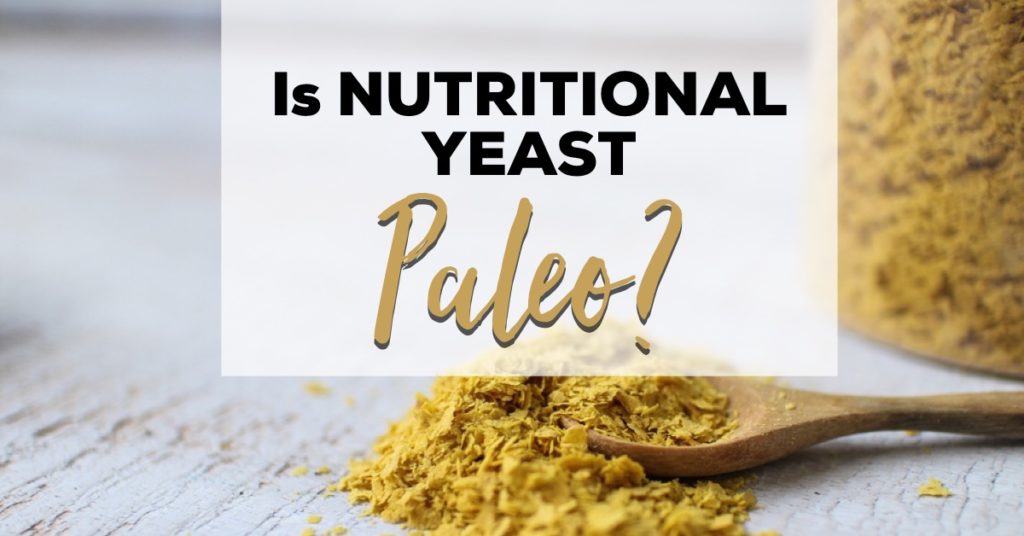
It’s yellow, it’s flaky, and it’s quite popular with the vegetarian and vegan crowd, but what exactly is nutritional yeast?
Often referred to as “nooch,” nutritional yeast is an inactive yeast that is made from sugarcane and beet molasses. Once the fermentation process is complete, the yeast is harvested, washed, dried, and packaged.
Nutritional yeast contains the inactivated strain of the yeast Saccharomyces cerevisiae, a sugar-eating fungus, whose cells use the sugar for energy.
Nutritional yeast offers a non-animal source of protein, which contains all nine essential amino acids, as well as providing an excellent source of B vitamins, including B12 and folate. Nutritional yeast also contains trace minerals, beta-glucans, glutathione, chromium, and over 40 proteolytic enzymes!
Since nutritional yeast is inactive, it will not cause a problem for those who might be experiencing yeast overgrowth, also known as candidiasis. (1)
Nutritional Value of Nutritional Yeast
Serving size: ¼ cup
- Calories: 60
- Carbohydrates: 5g
- Fiber: 4g
- Fat: 5g
- Protein: 6g
4 Health Benefits of Nutritional Yeast
Why is nutritional yeast, well, so nutritious? Here are the four biggest ways that it can boost health with regular consumption.
1. B Vitamin Boost
Nutritional yeast provides a vegan source of vitamin B12, also known as the energy vitamin. Nearly 50 percent of the population is deficient in this crucial water-soluble nutrient that is required for numerous body processes.
Levels of B12 can also decline during natural aging since a certain amount of stomach acid, in conjunction with a protein called intrinsic factor, is required to actually break down this large vitamin during the digestive process.
Vitamin B12 deficiencies have been linked to neuropsychiatric and mood disorders (Alzheimer’s and depression), anemia, increased homocysteine levels (a marker of overall inflammation), and low energy and fatigue. (2,3)
The B vitamins found in nutritional yeast are also required for:
- Neurotransmitter synthesis
- Healthy hair, skin, and nails
- Proper metabolism
- Supporting the digestive system
- Stable hormone production and levels
2. Protein Power
Nutritional yeast is a non-animal source of complete protein, meaning it contains all nine essential amino acids which are required for hundreds of biochemical actions throughout the body. Amino acids are often referred to as the building blocks of life since they form proteins that the body uses to support almost every single aspect of our cellular, metabolic, cognitive, and hormonal health. Without essential amino acids, our bodies would literally start to break down.
In addition to all of the basic body functions that it supports, nutritional yeast has also been shown through research to increase post-exercise immunity and recovery, making it a superfood for vegans, vegetarians, Paleo eaters, and even athletes. (4,5)
3. Gut Health
The yeast Saccharomyces cerevisiae has beneficial effects on gut flora. Nutritional yeast can help maintain the epithelial barrier integrity (the cells that line the intestines) as well as produce anti-inflammatory effects on the immune system. Saccharomyces cerevisiae can also increase antibody and leukocyte production, which can support a robust immune system.
The additional fiber found in nutritional yeast can also feed the good bacteria in the GI tract, while also stabilizing blood glucose levels. (6,7)
4. Folate Boost
Nutritional yeast provides a potent dietary source of folate, also known as vitamin B9, which is critical for red blood cell health, fetal development, cardiovascular health, and mood support.
S. cerevisiae, the inactive yeast in nutritional yeast, has also been shown to increase the folate content of food. Folic acid deficiency can lead to B12 deficiency, changes in sex drive, lack of focus, trouble sleeping, and even emotional ups and downs. (8,9)
Is Nutritional Yeast Paleo?

Since nutritional yeast is neither a plant nor an animal, but rather a fungus, it might not have been something our ancestors ate. This shouldn’t stop you from using this fabulous fungus as part of your Paleo diet, however, since it’s also not part of the anti-Paleo food groups. It can be used for many healthy swaps and even to make dairy-free cheese, perfect for taking your Paleo diet to the next level of enjoyment while nourishing your gut and body with plenty of vitamins and nutrients.
3 Ways to Use Nutritional Yeast
This gluten-free, yummy yeast has a nutty, cheese-like flavor that can be used as a dairy-free alternative for many of your favorite Paleo dishes! While it may look dry and flaky, it is full of flavor and packed with nutrients.
1. Use it As a Cheese Substitute

You can add nutritional yeast to zucchini noodles, cauliflower rice, or even cauliflower pizza as a dairy-free cheese option. You can even make your own Paleo cheese. If you find yourself craving comfort foods, try making a Paleo “mac and cheese” by using nutritional yeast. You’ll never be able to tell it’s not real dairy.
2. Sprinkle It On Everything
Do you find yourself missing the days when you could say “yes” to the waiter who came to your table and asked if you’d like some cheese with your meal? Well, you can start saying yes again, while satisfying your cheese craving! Sprinkle it on top of salads and steamed veggies, in your soup, on top of your chicken, or right into your scrambled eggs for a delicious breakfast omelet!
3. Roast Away
If you are looking for a little crispy action on your roasted veggies, reach for nutritional yeast. Roast your veggies as you normally would and then simply turn on the broil, sprinkle some nutritional yeast on top, and broil for 2-5 minutes. This will add a nice little crunchy texture to your vegetables while giving you an added boost of B vitamins.